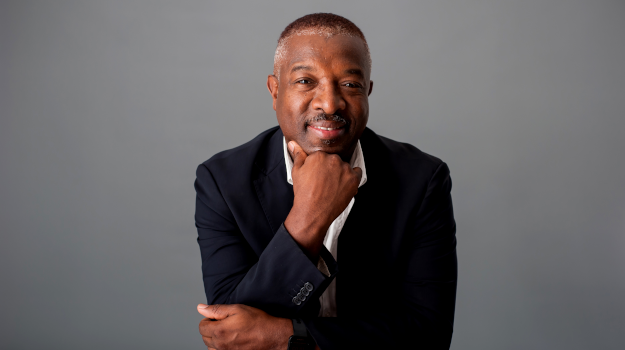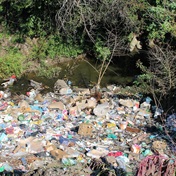
It will soon be two months since the whole world, at least much of it, was brought to a social and economic standstill.
Many, though not all of us, believe that the steps taken by governments around the world, including our own, have been necessary if we’re to play our part in the global pushback against the coronavirus.
It is obvious that because of differing approaches by many governments, as well as the timing of implementation in their efforts to slow down the spread of the pandemic, we will not all begin to see the peak of its growth curve at the same time. Some regions and countries have already reported having gone over the peak, and others are still far from even seeing the signs of it. But overall, global victory against the coronavirus will not be declared before the global aggregate growth path has peaked and begun a downward trend.
For all of the above to happen, each country needed sufficient levels of citizen trust in their government, on one hand and, on the other hand, adequate levels of finances, medical and scientific know-how, and robust healthcare systems. Sadly, the coronavirus found South Africa at a particularly low point when it comes to some of these key requirements, especially citizen trust in government and finances. Although the robustness of our health system had been progressively weakened in recent years, it was still stronger than many beyond our national borders. For this South Africans should be thankful.
It is on record that the South African government went into the war against Covid-19 with very low supplies in citizen trust and financial reserves, both of which are devastating results of state capture and other forms of sustained corruption over the past two decades or so. It is also on record that none of the politically shielded authors of the crimes that were committed against the country’s interests have been brought to justice. Instead, several of them still walk the country’s streets and corridors of power as lawmakers. They remain untouchable even by South Africa’s criminal justice system.
Finances seem sorted
Going by the recently announced R500bn stimulus package - and assuming that the funds, for once in post-apartheid South Africa, will be used for the right reasons - we can deem the financial side of things to be sorted, more-or-less.
Many also hope that the South African government will heed the country’s Auditor-General’s call for his office to be empowered to lead the way in placing measures in place, with strict, transparent checks and balances, to make it very hard, if not entirely impossible, for anyone to divert any portion of the stimulus funds into directions and purposes for which they are not intended.
Going by emerging anecdotes of abuse and inequitable treatment of citizens in distress, early signs are already ominous.
Trust remains precarious
On the matter of citizen trust, overall government reserves remain low.
The supplies ride largely on the trust that South Africans across the board seem to reserve specifically for President Cyril Ramaphosa, Health Minister Dr Zweli Mkhize, and their support teams of experts from the National Institute for Communicable Diseases (NICD). They have been widely praised for their refreshingly open, regular and consistent management of the push back campaign against Covid-19 since it began.
Finance Minister Tito Mboweni also enjoys higher than average levels of citizen trust for his progressive stance and willingness to engage out-of-the-box on many of the issues to which too many in the governing Tripartite Alliance remain married.
But this is not sustainable, especially when security forces and everyone else outside of the core leadership team against coronavirus seems to be doing their own thing and, in some cases, behaving as if apartheid has not ended. Their brutality has also been noted by the UN Human Rights Office in South Africa. We should be worried.
More pragmatism is needed
The lockdown, having dropped from the hard Level 5 to a somewhat softer Level 4 at the beginning of May 2020, might have helped South Africa slow down the speed of the coronavirus, relative to several other major countries around the world, but it has also led to rising levels of social unrest in the country, and a marked drop of trust in government’s intent.
Increasing numbers of South Africans have expressed growing frustration with the harsh conditions of the lockdown, reporting rising levels of hunger and fear of security forces, elements of which are now on record for the brutality they have meted out on poor, particularly black, communities around the country, apartheid style.
While Level 4 lockdown conditions allow designated industries to return to work, they need to be clearer on what other freedoms will be returned to all citizens. It doesn’t help that different ministers seem to issue orders informed only by their personal likes and dislikes instead of the war rationale against Covid-19. Their power overreach is worrisome.
Government cannot legislate against people’s cry for help. And security forces can maim some but will never effectively silence the growing cries for help by poor and middle-class South Africans.
If nothing changes and more freedoms are not given back to the people – where they should be – we’re going to see a situation where the South African government experiences a peak in citizen trust, followed by a sharp drop, long before we see the peaking of the Covid-19 growth curve.
Were this to happen, government would find itself standing alone, with no one prepared to continue adhering to its unreasonable clampdown on fundamental freedoms. It would then be forced to rely on the brutality of security forces to keep the order, and all hell would break loose.
A lot has been achieved to date. The South African government should be thanked for it. But it should also be urged to be mindful of the growing cries of South Africans for their hard-won freedoms to be returned and the unwarranted brutality of security forces to be stopped.
* Solly Moeng is brand reputation management adviser and CEO of strategic corporate communications consultancy DonValley Reputation Managers. Views expressed are his own.




 Publications
Publications
 Partners
Partners











